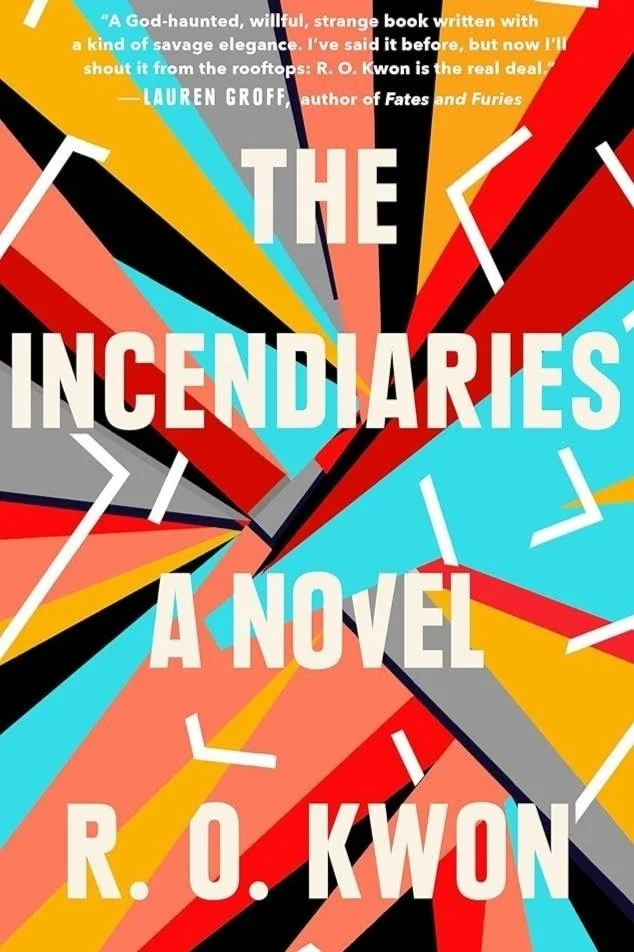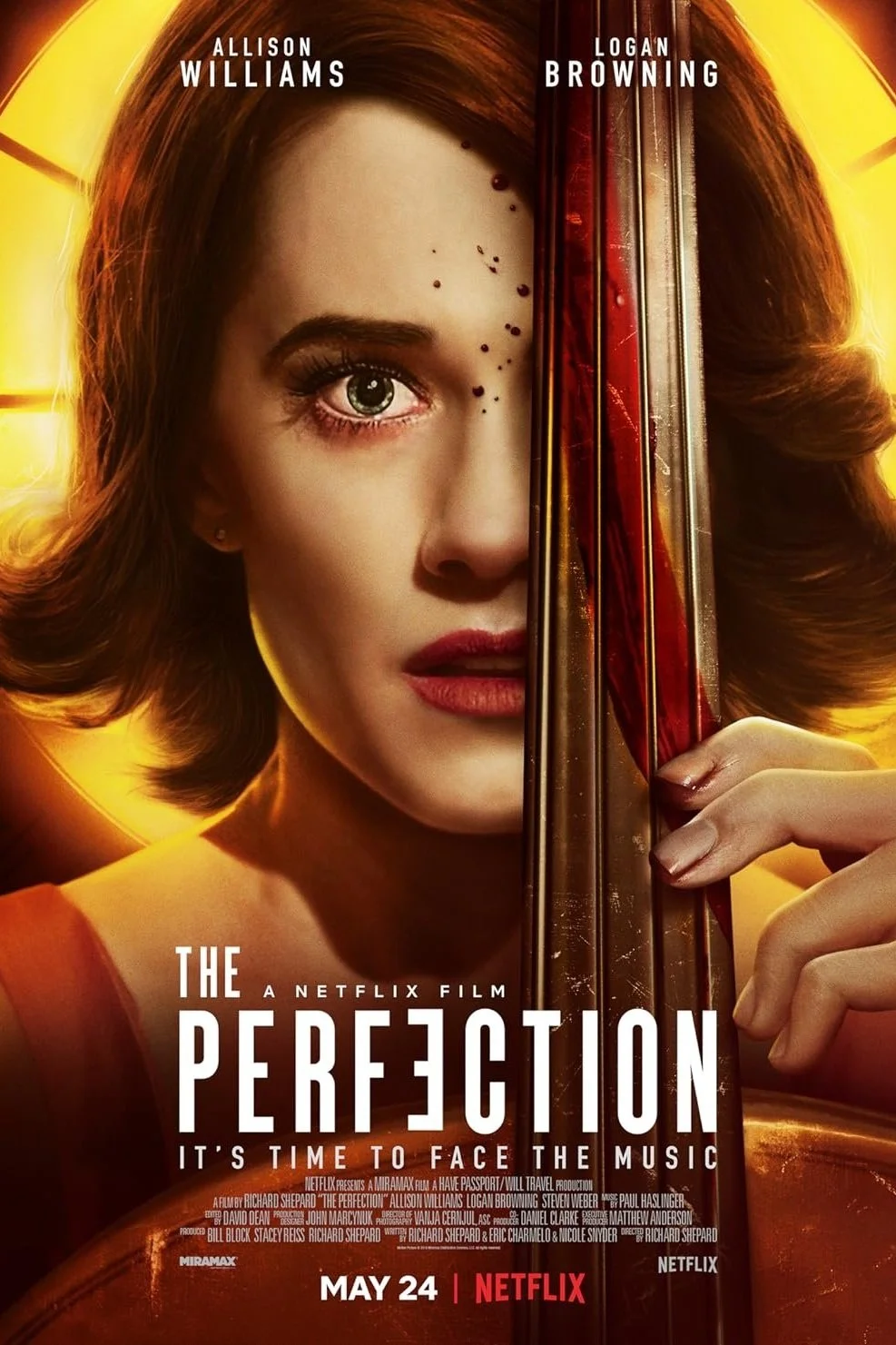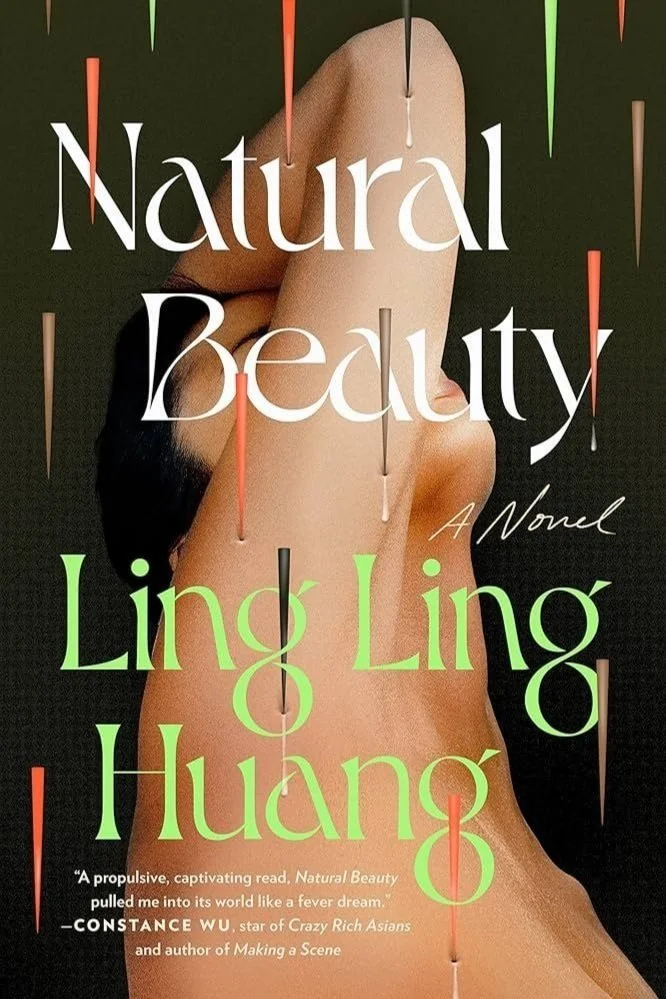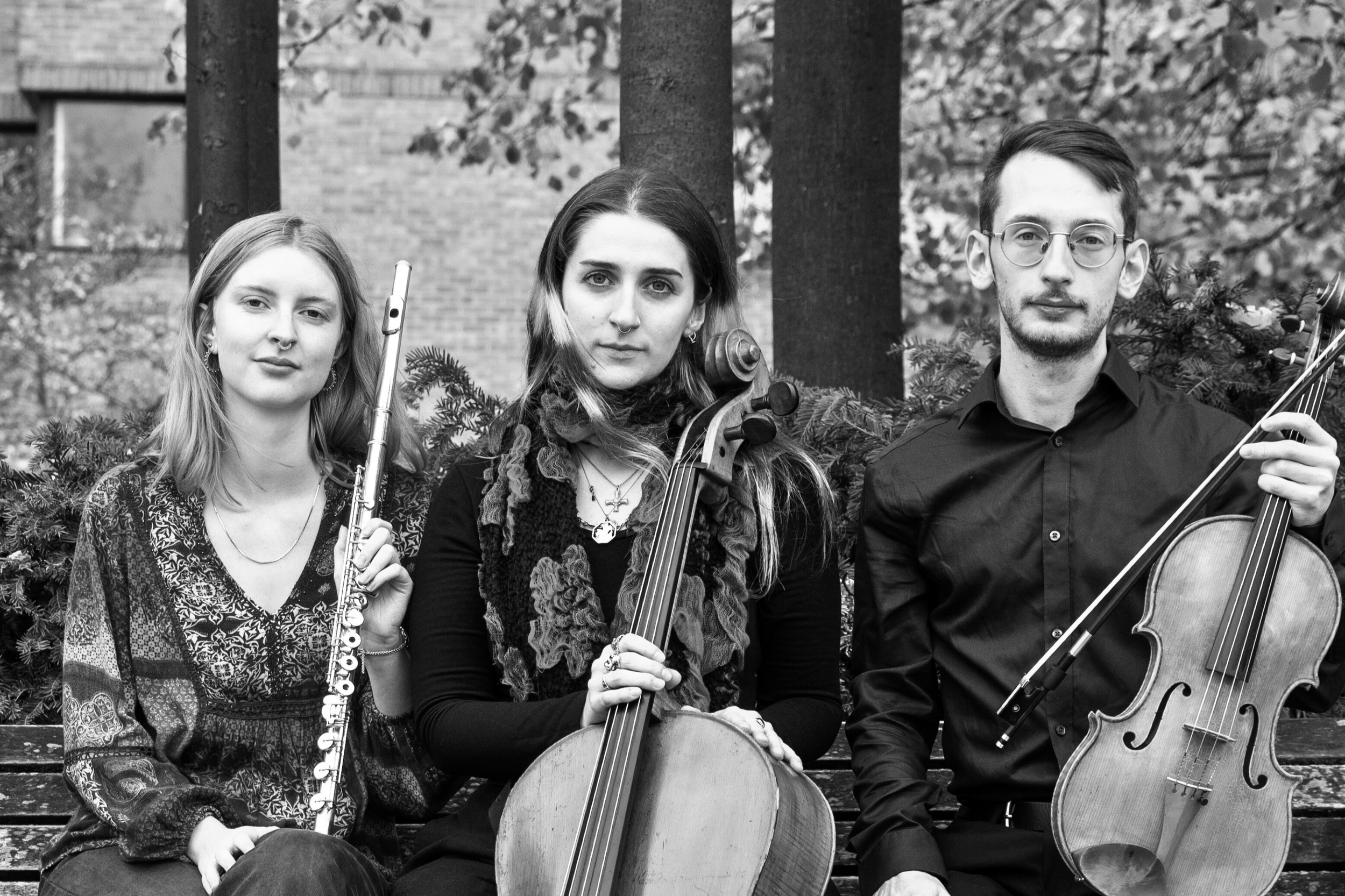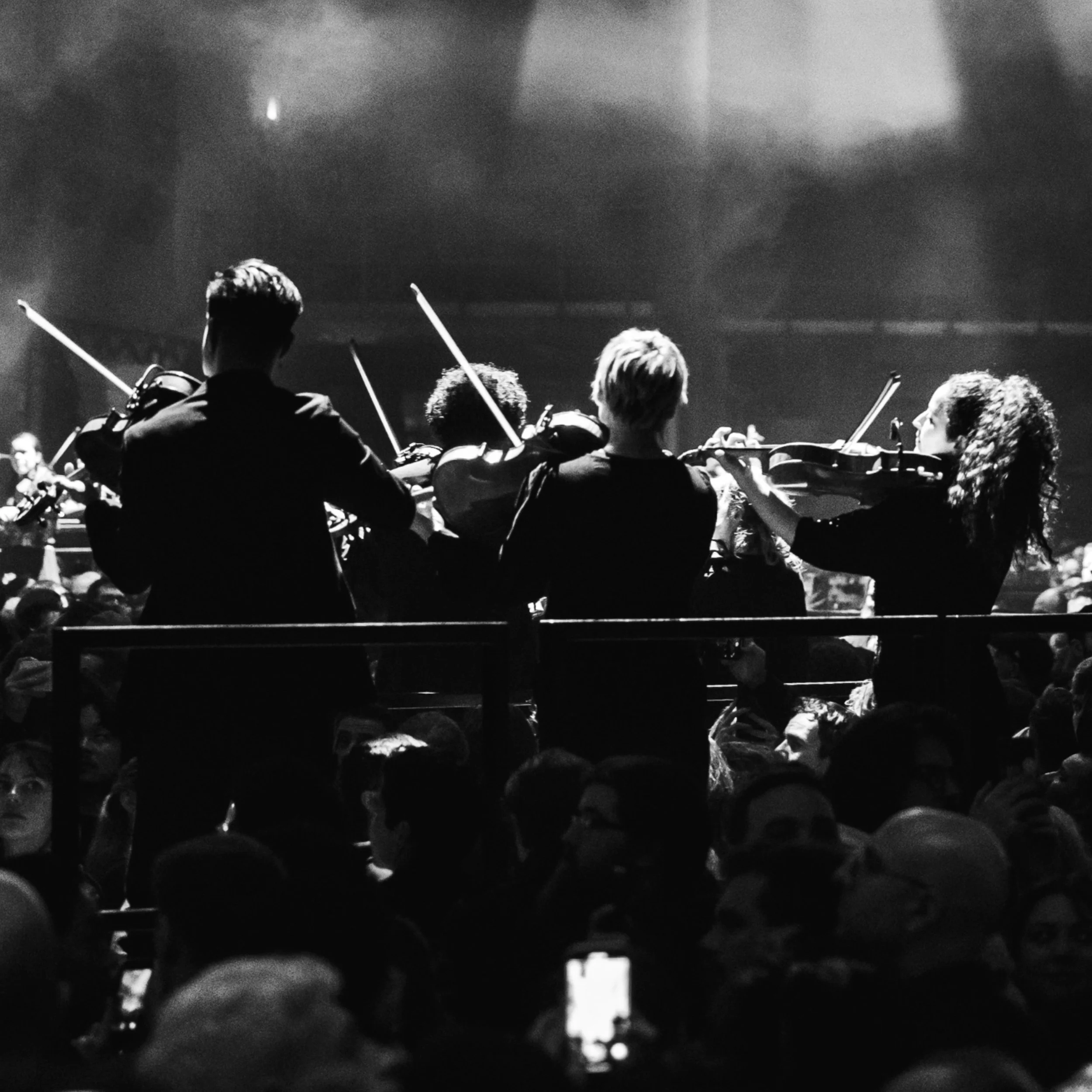The Conservatory-to-Cult Pipeline
What’s something that’s not a cult but borderline seems like one? Classical music...? This guest blog post by Shannon Draucker (Associate Professor of English and Women's, Gender, and Sexuality Studies at Siena College in Albany, New York, USA) discusses the “cult-ish” characteristics within the classical music world, and explores the dark side of musical devotion, through the lens of novels and films.
In a May 2021 TikTok video, the violinist Anastasiia Mazurok (@mmm_anastasy) responded to the then-popular social media prompt, “what’s something that’s not a cult but borderline seems like one?” Mazurok’s answer? “Classical music.” In her video, which received over 5,000 “likes” on TikTok, Mazurok outlines several cult-like aspects of classical music culture: “You’re recruited at a very young age.” “You need to practice your daily rituals for 40 hours a day, and the more you practice, the more devoted you are.” “You must sacrifice social life, hobbies, holidays.” “You may only be friends with other cult members because no other person will be able to talk to you about your cult literally all the damn time.” “Your music teacher is always right and can never be challenged or doubted.” “If you are a true classical musician, you are chosen, and you are special.”
Mazurok is far from the only artist to liken classical music culture—with its ethos of artistic piety, extreme sacrifice, and hero-worship—to a cult. The protagonist of Imogen Crimp’s novel A Very Nice Girl (2022), for instance, describes how vocal students who drop out of her conservatory are rarely heard from or discussed again: “Singing was a cult. The existence of opposing ideologies was a threat. We could speculate endlessly about why they’d left, but we never asked where they’d gone.” Films such as Whiplash (2014), Nocturne (2020), and Tár (2022) highlight the physical, emotional, and sexual abuse endemic to conservatory settings. Other artists and critics invoke the term “cult” to describe perhaps more innocuous, but nonetheless trenchant, patterns of musical devotion and worship in the classical music world. Terms like “cult of the virtuoso,” “cult of art,” “cult of the Work,” and “cult of the maestro” often appear in classical music criticism to signal the extreme reverence that many musicians and audience members hold for classical pieces and those who perform or conduct them.
While these examples highlight the ways in which classical music can be cult-like or “cultish,” as Amanda Montell might say—approaching but not spiraling into full-blown fanaticism—a handful of other recent works take the associations between classical music and cultism to its most extreme ends. R.O. Kwon’s novel The Incendiaries (2018), Richard Shepard’s film The Perfection (2018), and Ling Ling Huang’s novel Natural Beauty (2023), all centre on classical musicians who fall prey to actual cults. All three texts suggest that a lifetime of musical training has rendered the protagonists—all young women, notably—uniquely vulnerable to cult leaders’ predatory influences. In doing so, these works invite readers and viewers to critique some of classical music culture’s most deeply held ideologies: the fetishization of lifelong devotion, the promotion of social isolation, the celebration of ritual and sacrifice, and the worship of aesthetic purity.
[Note: these descriptions contain spoilers]
Buy through our bookshop.org affiliate link
1. R.O. Kwon, The Incendiaries (2018)
The protagonist of Kwon’s novel, Phoebe Lin, is a piano prodigy who gives up her musical career after her mother dies in a car accident while Phoebe is driving. She attends Edwards University, where she meets a man named John Leal and falls prey to his Jijeh cult, a fanaticist group notorious for bombing abortion clinics. Kwon frames Phoebe’s participation in Jijeh not as a tragic outcome of her lost musical career, but rather as a natural continuation of it—a new iteration of the kind of obsession she once cultivated as a classical pianist. As a child, Phoebe experienced almost religious levels of devotion to her music: “I was so small, at first, that I had to sit on a trunk balanced on top of the piano bench. It lifted me up. Disembodied in the piano’s polished depths, I hurled back and forth like its possessing spirit, shown large, powerful.” Elsewhere, Phoebe describes learning a difficult étude by a fictional composer named Libich, which “asked so much of me that, at times, I’d forget I had an I.” She notes, “[P]laying had to be birthed in a place without an ego, in which I didn’t exist except as a living conduit, Libich’s medium.” In these moments, Kwon establishes Phoebe as a character willing to give herself over to something “greater,” to suspend her own identity in service of a higher being. It is perhaps unsurprising, then, that Phoebe experiences Jijeh as filling a void she lost when she gave up music: “I hadn’t known it, but I longed for discipline. It was part of the life I’d lost with the piano: a schedule, rigid expectations. With the six-plus hours I practiced each night, I’d had rules to bind me in place. They’d held me up.”
Phoebe’s musical training also serves as a form of perverse preparation for the physical abuse she endures as a member of Jijeh. She describes how her piano teacher “flicked my hands with a rod each time I didn’t hit the right note, but I didn’t mind. My ambition outstripped his. Let my hands swell. I could use the extra span. Bright-knuckled, I tried again.” Parallel scenes occur in the descriptions of Leal’s “group penances,” which leave Phoebe with “a back crisscrossed with welts, bruises. In spots, the skin had broken.” Piano playing, Kwon intimates, has taught Phoebe that abuse and pain are natural, expected, and even useful components of participation in meaningful pursuits.
While the music-as-cult narratives discussed below imagine more redemptive outcomes in which music ultimately helps to save, or at least soothe, the traumatized protagonists, The Incendiaries offers no such deliverance. The novel concludes ambiguously; Phoebe either dies or fakes her own death (as her boyfriend Will hopes). Either way, readers are left with the impression that classical music cult(ure) can serve as a gateway to much more sinister and violent forms of fanaticism.
2. Richard Shepard, The Perfection (2018)
In Shepard’s film (which is currently on Netflix, as of September 2025), the conservatory is the cult. The film focuses on two cellists, Charlotte and Lizzie, who fall victim to the extensive brainwashing and abuse rampant at the prestigious Bachoff music school in Massachusetts. The conservatory director, Anton Bachoff, and the other faculty select exceptional students to play in the acoustically perfect “Chapel” but then punish them with gang rape if they make musical errors (if they fail to achieve “the perfection”). Students who endure this sexual abuse are also branded with music-note tattoos.
The film opens as Charlotte attempts to rescue Lizzie from the Bachoff cult by seducing her, drugging her, and convincing her to cut off her own hand so that she can no longer play the cello. The rest of the plot unfolds as a “rape revenge fantasy” in which Charlotte and Lizzie seek retribution by murdering the faculty members, cutting off Anton’s limbs and eyes, and forcing him to listen to them play. The film ends with a shot of Charlotte and Lizzie playing a single cello with the two hands that remain between them (Charlotte, too, loses a hand in a violent confrontation with Anton).
As feminist critics such as Vox’s Aja Romano have written, The Perfection’s revenge plot rehearses some deeply misogynistic tropes about rape culture, namely the notion that “sexual violence is some sort of rite of passage that a woman undergoes in order to become fully actualized and gain autonomy”—and that transcendent musical “perfection” requires “physical impairment.” Indeed, the film cannot imagine a musical world outside of a violent cult context. Though the women play together at the end, viewers cannot easily forget Charlotte’s abuse of Lizzie, nor imagine any kind of musical future for the protagonists in which coercion, manipulation, and mutilation do not play a role.
Buy through our bookshop.org affiliate link
3. Ling Ling Huang, Natural Beauty (2023)
Unlike Phoebe, Charlotte, and Lizzie, Huang’s unnamed protagonist enjoys childhood musical experiences tied to love, care, family, and community. Her beloved parents escaped China’s Cultural Revolution to establish lives as music teachers in the U.S., where they teach their daughter to play piano. The narrator’s virtuosic performances attract international attention, including a scholarship offer from a mysterious benefactor of a prestigious Manhattan music school. When the protagonist leaves for conservatory at age 12, she copes with her homesickness by playing piano: “When I missed [my parents], I could play piano and remember they were more than close: they were part of me.”
However, the conservatory quickly becomes a site of abuse and manipulation. The protagonist is bullied by other students. In an especially haunting scene, they spill hot tea on her hands, giving her painful blisters that she must play through, “biting my tongue in pain while my right hand oozed pus on the keys.” Yet, this experience teaches the protagonist that emotional and physical pain can fuel a successful performance: “The anger and distress had given the piece an emotional expression my professors had hardly thought possible. They all agreed it was my best performance yet.” Enduring this bullying—as well as, readers later learn, sexual abuse at the hands of the benefactor—alters the narrator’s musical life: “My relationship with music changed; love became dependency.” She notes, “The contrast between the acceptance I had at home and the hostility I received at school was unbearable, and so I became obsessed with growth and self-improvement.”
As with Phoebe, the musical career of Huang’s narrator ends when her parents are seriously injured in a car accident on the way home from one of her concerts. Left with severe brain damage, they remain in a care home. The narrator finds a job at Goop-like wellness company called Holistik that sells supplements, creams, and oils in the name of “self care.” Working at the company gives the narrator the sense of routine and purpose that piano once offered: “I leave home early to arrive before my shift. It reminds me of the Conservatory, where I would sit at the piano, playing the score of the sunrise.” Later, she remarks on how Holistik affords her the “real and social currency” she lost when she gave up the piano.
However, the protagonist soon learns that Holistik is in fact a dangerous cult whose products dramatically and horrifically alter users’ physical appearances. In Huang’s work, classical music and cultism directly collide; Holistik’s CEO Viktor, it turns out, is the mysterious benefactor who sent the narrator to music school and later conspired with her conservatory teacher to sexually assault her. The narrator draws explicit parallels between Viktor’s work as both a CEO and a patron of classical music: “Music also requires an absolute commitment to aesthetics.”
Huang’s narrator ultimately escapes the cult and forges a new, if changed, relationship to music. She returns to the piano, though she must develop an entirely new technique, as her hands, so fully disfigured by Holistik’s products, look “like beaks.” She uploads videos of herself playing, which go viral. Though she knows many of her viewers are only interested in the “spectacle” of her performance, she finds a new kind of artistic freedom in developing her new technique: “Since everything about me at the piano is wrong and ugly, I lose all pressure to fit my sound into the conventional beauty of classical music. Now I can try to play Adès and Britten and Crumb the way I want to hear them. Not as pieces but as experiences. Instead of emulating great pianists, I try to sound like worms exulting in damp earth, birds squawking in the jungle at night, the soft pour of moonlight on pavement…I had been afraid, at first, to continue without my parents. Now I know I have to keep playing. I am the throat by which my parents are sung and sustained.” Music may lead the narrator into a cult, but it also enables her to escape and create a new life.
By taking classical music’s “cult-ish” features to their most extreme ends, these texts invite readers and viewers to put real pressure on one of Western culture’s most cherished art forms. Can we conceive of a classical music culture that does not so easily align with cultism? How might we resist the ethos of ritualistic sacrifice, deference to authority, and physical abuse that classical music so often involves? How might we reimagine a classical music world that prioritises justice, solidarity, and care—and that makes life materially better not only for those who hear the “transcendent” music, but also for those who make it?
Footnotes:
1. Anastasia Mazurok (@mmm_anastasy), “The Cult of Classical Music: Unveiling the Truth” Video, Stitch with @yourcoolauntvic, May 14, 2021.
2. Imogen Crimp, A Very Nice Girl (New York: Henry Holt, 2022), 270.
3. See, for instance, Alex Ross, ““Hold Your Applause: Inventing and Reinventing the Classical Concert,” Lecture at the Royal Philharmonic Society, March 8, 2010, The Rest Is Noise (blog).
4. Amanda Montell, Cultish: The Language of Fanaticism (New York: HarperCollins, 2021).
5. R.O. Kwon, The Incendiaries (New York: Riverhead Books, 2018), 25.
6. The Perfection, directed by Richard Shepard (Miramax, 2018).
7. Aja Romano, “Netflix’s The Perfection Learned All the Wrong Lessons from #MeToo,” Vox, May 28, 2019..
8. Ling Ling Huang, Natural Beauty (New York: Dutton, 2023), 21.

